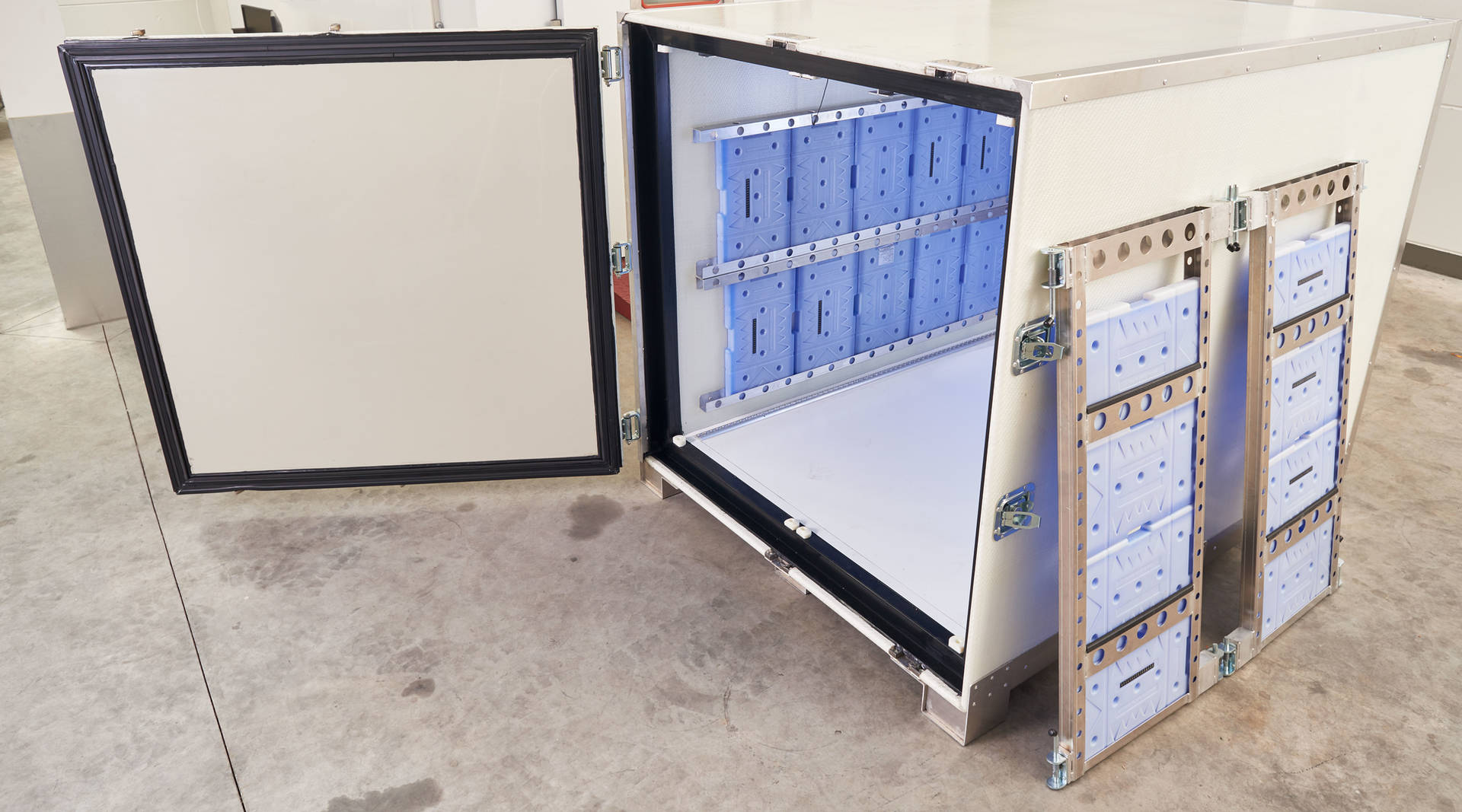An active voice for pharmaceutical care
Taking a leading role in the regulatory landscape

Here’s a challenge: As medical products become more specialized and more complex, they often become more difficult to transport. Specific temperature ranges must be maintained to keep the products from deteriorating. That’s hard enough when moving products across a major metropolitan area. It’s exponentially more problematic when traversing across continents, managing through airport customs delays, factoring in external climate variations that might include winter in Moscow or summer in Dubai.
Companies that specialize in packaging design have developed a host of mechanisms to combat the issues of effective temperature management, but each one comes with limitations.
Volker Kirchner, Director of Temperature Control Solutions for World Courier—an AmerisourceBergen company—explains: “Historically, what we had seen was larger, pallet-sized containers with integrated coolant systems that had to be plugged in or battery-powered. These are called active systems. They’re fairly turn-key, but are also heavy and require good supporting infrastructure along your transport route to maintain the power supply and the internal temperature.
“Alternately, we’ve seen passive systems, which use phase change materials (PCMs) to maintain temperature—think of PCMs like the gel packs or freezer blocks you might use to keep a picnic lunch cool. These systems are lighter,” Kirchner said, “but they also require a lot more precision and planning to ensure that the right amount of phase change materials are used. We felt we could create something better.”
Volker Kirchner, Director of Temperature Control Solutions for World Courier—an AmerisourceBergen company—explains: “Historically, what we had seen was larger, pallet-sized containers with integrated coolant systems that had to be plugged in or battery-powered. These are called active systems. They’re fairly turn-key, but are also heavy and require good supporting infrastructure along your transport route to maintain the power supply and the internal temperature.
“Alternately, we’ve seen passive systems, which use phase change materials (PCMs) to maintain temperature—think of PCMs like the gel packs or freezer blocks you might use to keep a picnic lunch cool. These systems are lighter,” Kirchner said, “but they also require a lot more precision and planning to ensure that the right amount of phase change materials are used. We felt we could create something better.”
We felt we could create something better.

Something better turned out to be a new packaging system, which World Courier named Cocoon. Developed and tested over the course of several years, Cocoon uses a proprietary combination of honeycomb, vacuum-insulated panels and advanced phase change materials to provide stable thermal protection across multiple temperature ranges. The validated statistics leapfrog the market:
Temperature Stabilization
Cocoon maintains temperature for up to 40% longer than comparable systems. According to Kirchner, Cocoon’s performance has been transparently verified against comparable systems in side-by-side testing in World Courier’s climate chamber, which produces temperatures mimicking frigid winters and blazing summers.
15-30% Lighter Weight
It weighs 15-30% less than comparable packaging systems, while incorporating reusable materials. Lower weight reduces transport costs for shippers; use of reusable materials decreases each shipment’s environmental footprint.
“The need for solutions that accommodate a global healthcare market is only going to grow.”
World Courier President Sam Herbert
“Real-world use has borne out these results as well,” said Kirchner. “A shipment using Cocoon maintained internal temperature throughout a two-week delivery from Austria to Baghdad, which included 10 days of warehouse storage along the way in uncontrolled temperatures.”
For World Courier and AmerisourceBergen, the excitement and applicability of the innovation extends beyond the initial system and connects to the impact on what developments like Cocoon can mean for the future of healthcare.
“The need for solutions that accommodate a global healthcare market is only going to grow,” said World Courier President Sam Herbert. “Cocoon represents practical innovation that scales toward meeting global needs. By helping manufacturers keep products safer and for longer, by helping them reach more patients in more cost-effective ways, we’re enabling new avenues to better healthcare.”
“The need for solutions that accommodate a global healthcare market is only going to grow,” said World Courier President Sam Herbert. “Cocoon represents practical innovation that scales toward meeting global needs. By helping manufacturers keep products safer and for longer, by helping them reach more patients in more cost-effective ways, we’re enabling new avenues to better healthcare.”


